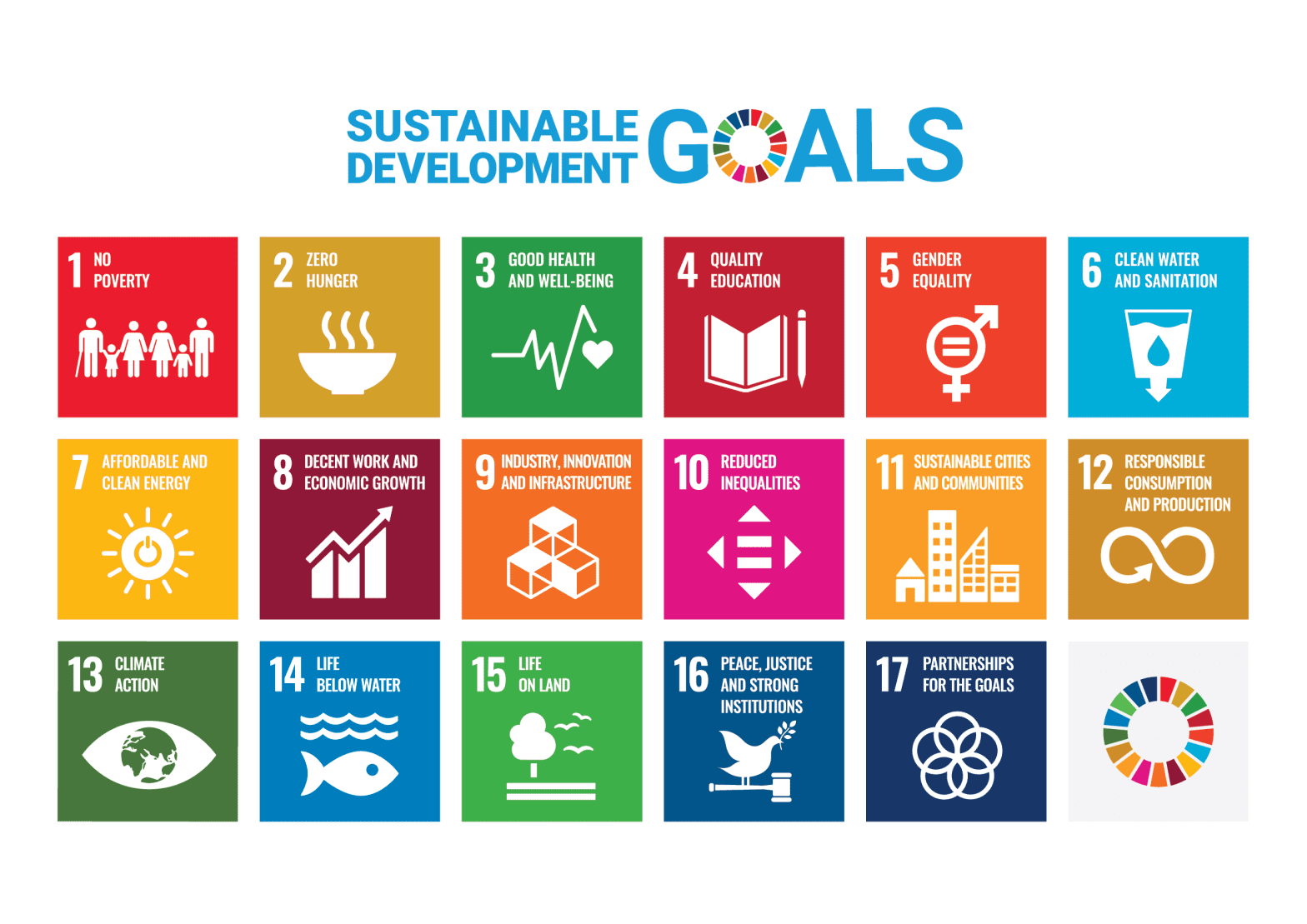Five ways organisations can help the LGBTQ+ community
While hanging a Pride flag in your offices, vocalising support for the LGBTQ+ community, and encouraging inclusive policies across your organisation are all great, they ultimately don’t tackle the core issues many LGBTQ+ people face.
For your organisation to align itself with the LGBTQ+ cause in a deeper, more valuable way, it’s instead about finding ways to truly benefit the lives of LGBTQ+ people both inside and outside your organisation. Where possible, we should look to be a part of bringing this whole, global conversation forward, helping improve equality and inclusion for every member of the LGBTQ+ community across the world.
We’re here to show you how your businesses can generate social impact, supporting these causes beyond just the surface level of doing what’s nice. Instead, you can strive to improve the lives of those within the LGBTQ+ community. It’s easier than you think to move past inclusive policies and practices into more impactful activism. Here’s how you can use your organisation’s voice and resources to advocate for real social and political change.
1. Ongoing partnerships with LGBTQ+ organisations
Many organisations engage with the LGBTQ+ cause on a basic level. They might financially contribute to an LGBTQ+ organisation during Pride month, sponsor a float in a parade, or support a one-off LGBTQ+ charity event. These are all great things to do and help show your support for the cause.
But why not go one step further? You could partner with a charity who specifically targets deep-rooted issues faced by the LGBTQ+ community. For example, AKT helps LGBTQ+ people experiencing homelessness or hostile living arrangements. Or there’s Terrance Higgins who supports sexual health and those living with HIV.
This way, you’re making a real difference to the lives of LGBTQ+ people in your local community and beyond. More importantly, make it a year-round, ongoing, permanent partnership. Instead of just showing your support during Pride month, show it always.
Anyone can volunteer or donate. But it’s important organisations aren’t just giving money because it’s the easy way out. Because it makes you feel good and then the problem goes away. As a business, you need to look at what resources you have at your disposal to help beyond volunteering or donating. Can you donate your services? For example, a marketing agency running homelessness campaigns for a charity. Or a training provider offering free courses, development, tuition, or mentoring. It’s about looking beyond what’s expected and getting creative with the specific resources your business has to offer.
This doubles as a great opportunity to get support back from the organisations you link up with. You might consider yourself an ally, but be unable to fully comprehend what needs to be done. Or likewise, you may be part of the LGBTQ+ community but are unsure how to encourage positive change on a company-wide level. By assimilating yourself into the wider LGBTQ+ community, you open yourself up to plenty of organisations who can provide valuable support and resources to help shape your organisation’s own relationship with the LGBTQ+ community.
2. Synchronise your volunteer efforts
Another way you can support any LGBTQ+ organisations within your local area is to synchronise your volunteer efforts. As part of CSR, many businesses encourage their staff to volunteer and help the local community. By incorporating LGBTQ+ organisations into your list of supported volunteer opportunities, you allow your staff to give back with their own time.
By choosing charities or organisations who work to combat the deep-rooted issues experienced by the LGBTQ+ community – whether that’s homelessness, mental health, drug or alcohol abuse, or identity crises – your organisation can have a wider impact on both the individual and community level, making a real difference to LGBTQ+ people’s lives and struggles.
3. Tailor your mental health support
While you probably have mental health support processes already in place, these should also factor in the specific and unique challenges that LGBTQ+ people face. It’s essential you’re acknowledging their individual circumstances and using this to shape your organisation’s mental health support and practices.
Many LGBTQ+ people experience fewer protections and guarantees than their colleagues. With high unemployment rates across the community, there can be anxiety over job security, workplace/economic or health inequalities, and a prevalence of homelessness. They can also be more susceptible to drug or alcohol abuse.
All these problems can significantly impact the mental health of LGBTQ+ staff. Then they’re faced with the double stigma of mental health and sexual/gender identity. And this can be even further complicated and exacerbated by cultural differences – intersections of race and class, amongst others.
As a result, LGBTQ+ people are twice as likely to experience a mental health condition and are at greater risk for suicidal thoughts and attempts, with 46% of trans people having considered taking their own life. Finally, 68% of LGBTQ+ workers in the UK report experiencing sexual harassment at work.
This makes it even more important for your organisation to break the stigma surrounding mental health and open up the conversation across your organisation. Openly promote staff wellbeing and provide regular training on stress management, mental health, and LGBTQ+ self-care.
By making mental health support widely accessible across your organisation, not only are your employees part of an inclusive, accepting workplace, but there are measures in place to support them and their unique challenges should they ever need it. If you lack the resources and experience to offer the necessary support, take the time to research into relevant local services that you can refer your staff to.
4. Create LGBTQ+ employee network groups
Following on from providing mental health support that’s valuable for the unique struggles and experiences of your LGBTQ+ staff, it can be massively beneficial to create LGBTQ+ employee network groups within your organisation.
These groups can transform the experience of your LGBTQ+ staff, allowing employees to come together and share experiences, offer peer-to-peer support, and raise awareness.
Requiring time, resources, recognition, and funding from your organisation, they keep you accountable for providing ongoing LGBTQ+ support. They can also lead to positive changes in company policy by giving a louder voice to those experiencing LGBTQ+ related issues firsthand.
An organisation’s journey with the LGBTQ+ cause is an ongoing, evolving relationship and groups like these ensure a long-term commitment from the organisation and provide a platform to keep educating your organisation on how to do better.
This is a great resource from Stonewall if you’re looking to get started.
5. Expand efforts beyond your organisation
To strengthen your support for the LGBTQ+ cause, stop viewing your organisation in isolation. Instead, require all your partners, shareholders, supply chain, or contractors to comply with your organisation’s inclusive policies and practices.
Acting in a similar way to the Modern Slavery Act, require ongoing transparency from all aspects of your operation to ensure every avenue of your organisation is supporting the cause. This takes your support one step further, encouraging widespread change and accountability.
We’ve reached a point in LGBTQ+ awareness where promoting equality and inclusivity across your organisation is the bare minimum. It’s a legal requirement and just the right thing to do.
So now it’s up to us as organisations to identify how we can grow our support for the LGBTQ+ cause and make more of a tangible, far-reaching impact on the lives of LGBTQ+ people everywhere.
By identifying the core issues of the LGBTQ+ experience, you can identify new ways to make a difference inside your organisation and beyond into wider communities.
With Impact, measuring the difference your organisation is having on individual lives and communities has never been easier. Effortlessly collect the data you need to support your CSR strategy and generate valuable reports to share the impacts you’re having. To find out more, get in touch with us on 0161 532 4752.




